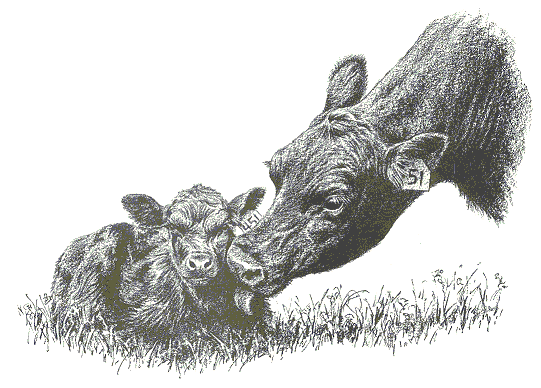| .vscode | ||
| .gitignore | ||
| fastq-to-taxonomy.sh | ||
| fetchmetadata.R | ||
| LICENSE | ||
| main.sh | ||
| manipulatefeaturetable.R | ||
| README.md | ||
| sample-classifier.sh | ||
| sample-regression.sh | ||

Cow/calf Rumen Metagenomics Pipeline
An end-to-end script to convert Illumina shotgun sequences and metadata into full-blown diversity tables and visualizations. Of course, it's focused on the rumen and dam/calf relationships, but is widely applicable to other systems.
Written entirely during Spring Semester 2019 for work done in Dr. Hannah Cunningham-Hollinger's lab at the University of Wyoming, computed on UW's [ARCC High-performance servers][arcc-servers] and presented as a [poster] at the Western Section American Association of Animal Science annual meeting.
Prerequisites
You will need access to the following commands/programs:
metaxa2,metaxa2_ttt,metaxa2_dc([Metaxa2])Rscript([R])source activate([Miniconda])qiime,biom(Install within [conda environment] namedqiime2)
If working on a HPC, contact your department to find out how to get access to these commands.
Usage
Clone the script files
git clone https://github.com/MillironX/cowcalf-rumen-metagenomic-pipeline.git
Create a directory with all forward- and reverse- read files in it, named as
<SAMPLEID>_R1_001.fastq.gz for forward-reads and <SAMPLEID>_R2_001.fastq.gz
for reverse-reads. Add a [QIIME2-compatible metadata file][qiime2-metadata]
named metadata.tsv, text files containing the minimum and maximum rarefaction
values names rarefaction.min.txt and rarefaction.max.txt and copy all of the
code files into it. It should look like
.
├── sample1_R1_001.fastq.gz
├── sample1_R2_001.fastq.gz
├── sample2_R1_001.fastq.gz
├── sample2_R2_001.fastq.gz
├── ...
├── sampleN_R1_001.fastq.gz
├── sampleN_R2_001.fastq.gz
├── metadata.tsv
├── rarefaction.min.txt
├── rarefaction.max.txt
├── main.sh
├── fastq-to-taxonomy.sh
├── manipulatefeaturetable.R
├── fetchmetadata.R
├── sample-classifier.sh
└── sample-regression.sh
With Slurm
These scripts are preconfigured for use with [Slurm] and [Lmod]. Everything is
very basic, and should work on any Slurm configuration. Before use, be sure to
replace the provided credentials with your own in main.sh,
fastq-to-taxonomy.sh, sample-classifier.sh, and sample-regression.sh, then
run
sbatch main.sh
Without Slurm
Edit main.sh and remove every call to srun (including its cli options),
replace every instance of $SLURM_NTASKS with the number of parallel threads
you wish to run, and comment out every line that starts module load. Then run
./main.sh
Future Work
This project is finished. It is meant to be a reference and an inspiration, but nothing more. I do not intend to update the code now (as embarrassing as it might be).
Known Issues
- Miniconda now uses the
conda activatecommand line instead ofsource activate
License
Distributed under the MIT License. See LICENSE for more information.
Contact
Thomas A. Christensen II - @MillironX
Project Link: https://github.com/MillironX/cowcalf-rumen-metagenomic-pipline
[poster]: https://millironx.com/Academia#metagenomics [arcc-servers]: https://www.uwyo.edu/arcc/ [slurm]: https://slurm.schedmd.com/overview.html [qiime2-metadata]: https://docs.qiime2.org/2019.4/tutorials/metadata/ [R]: https://www.r-project.org/ [metaxa2]: https://microbiology.se/software/metaxa2/ [Miniconda]: https://conda.io/en/master/miniconda.html [conda environment]: https://docs.qiime2.org/2019.4/install/native/#install-qiime-2-within-a-conda-environment [Lmod]: https://lmod.readthedocs.io/en/latest/index.html